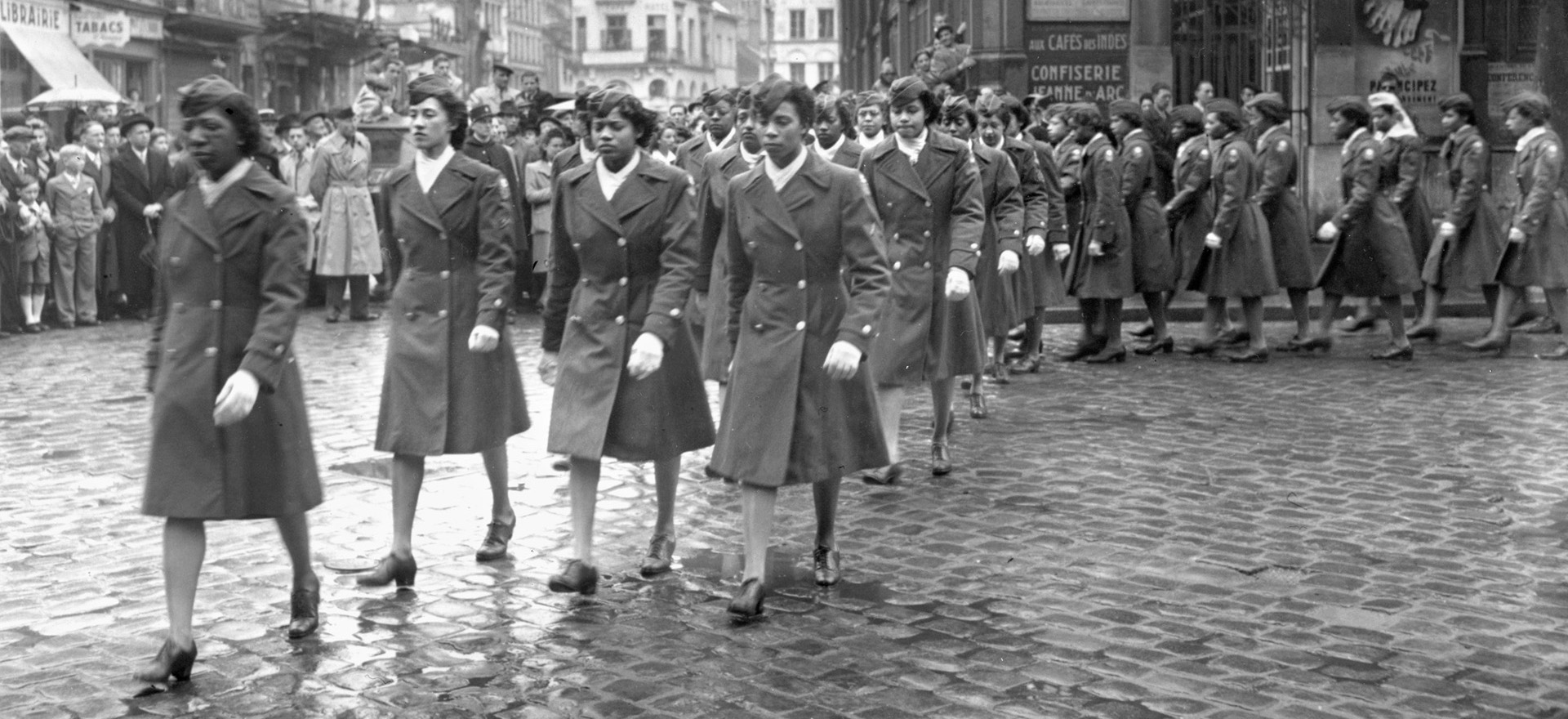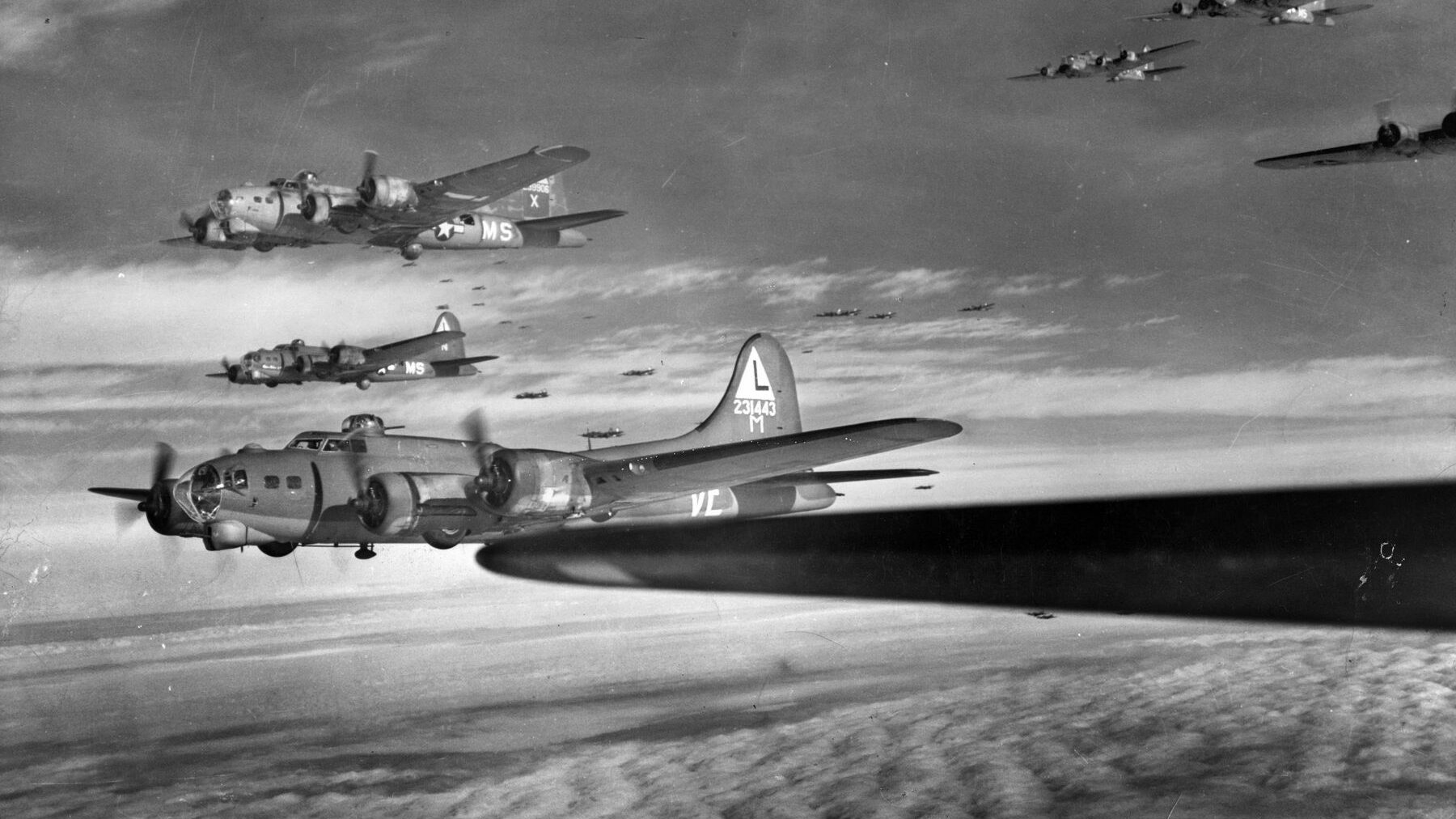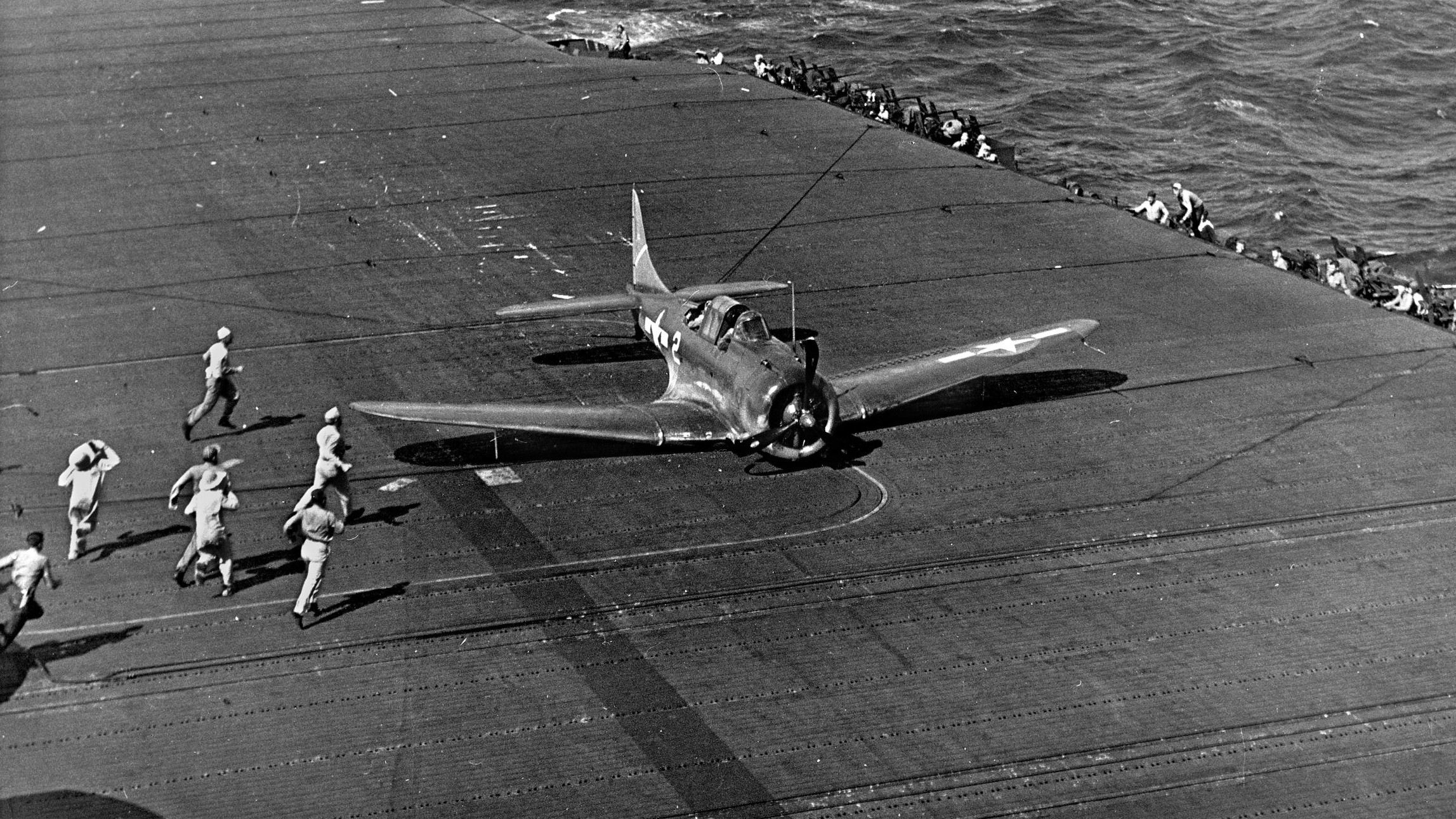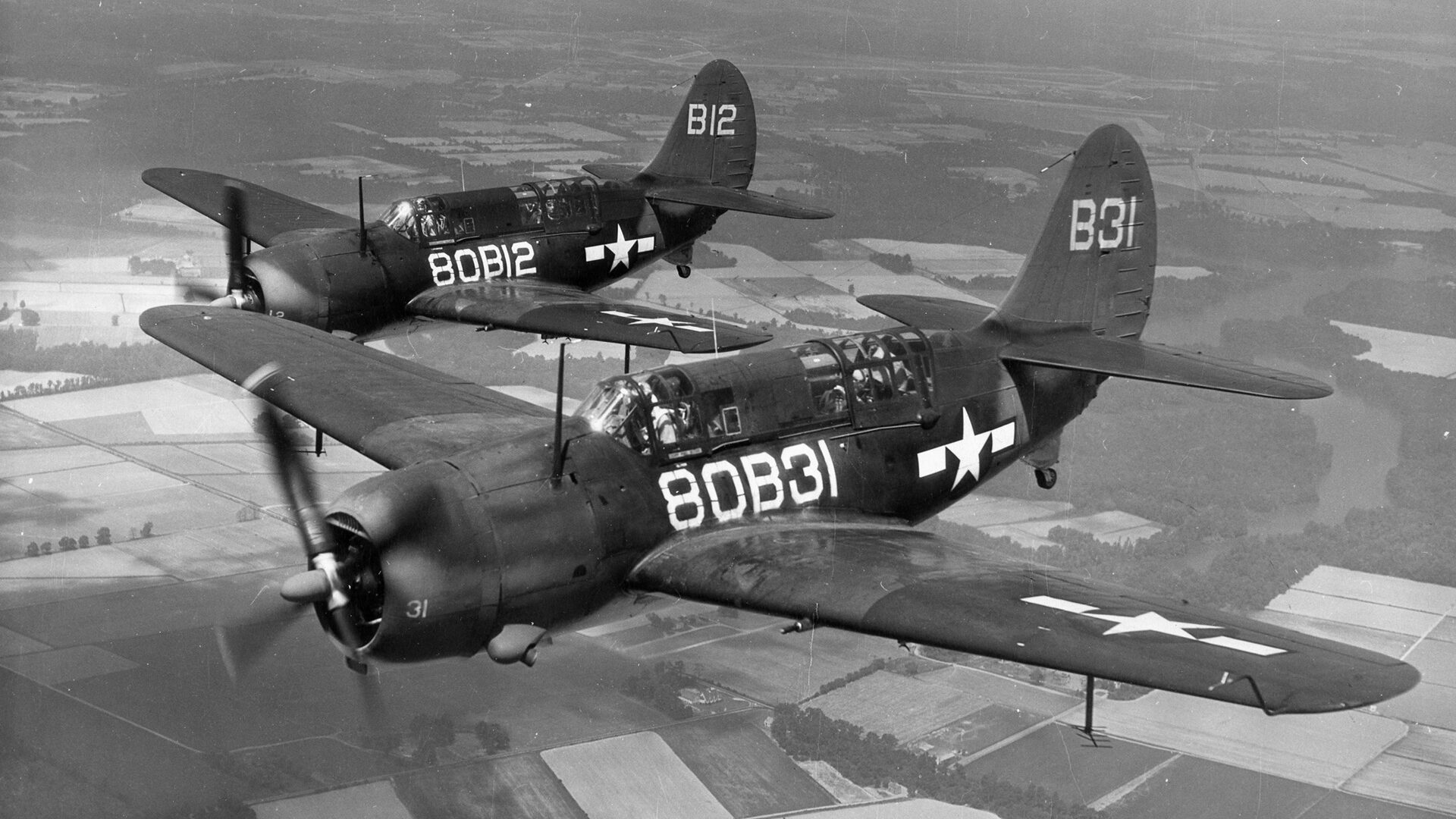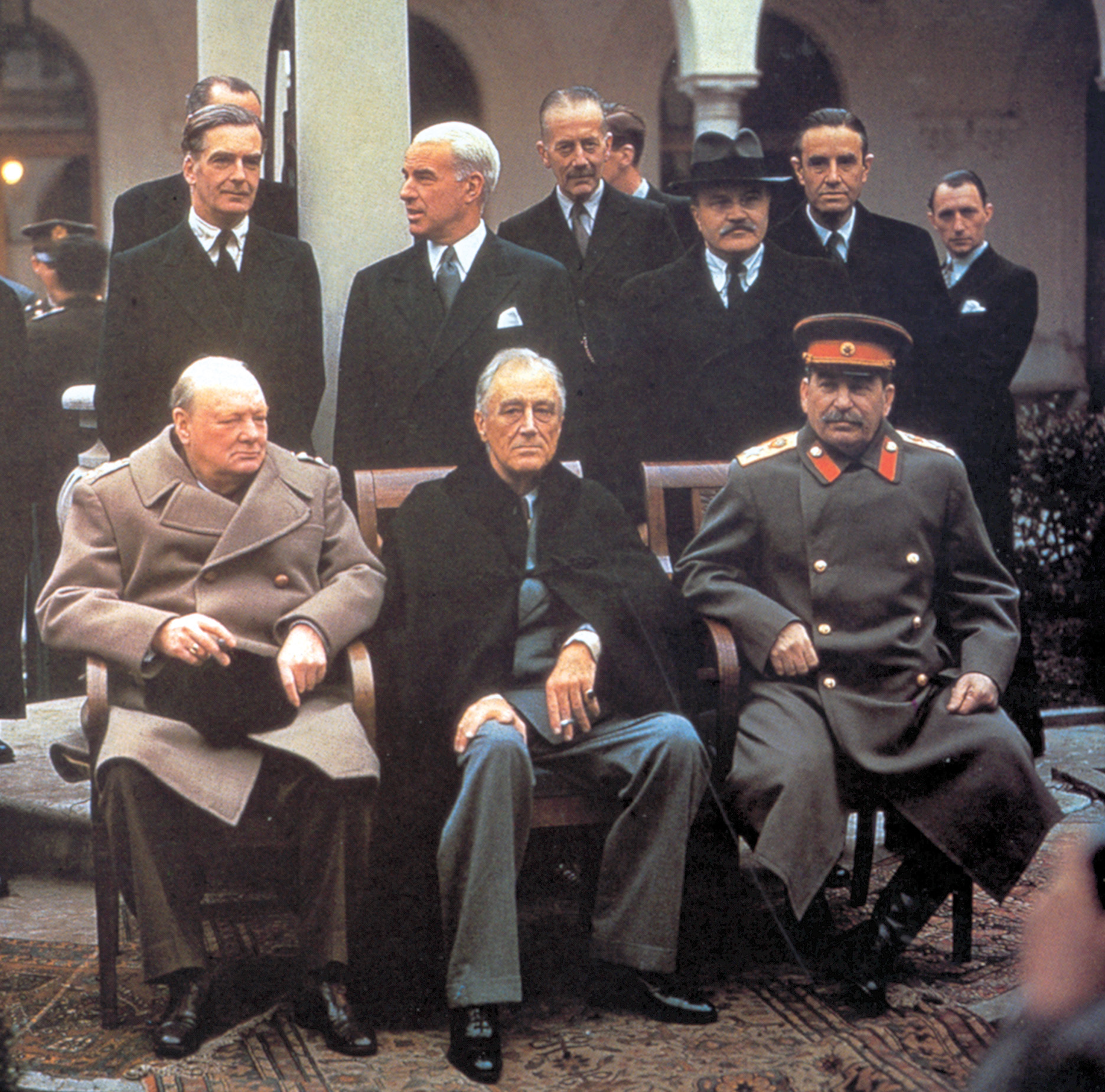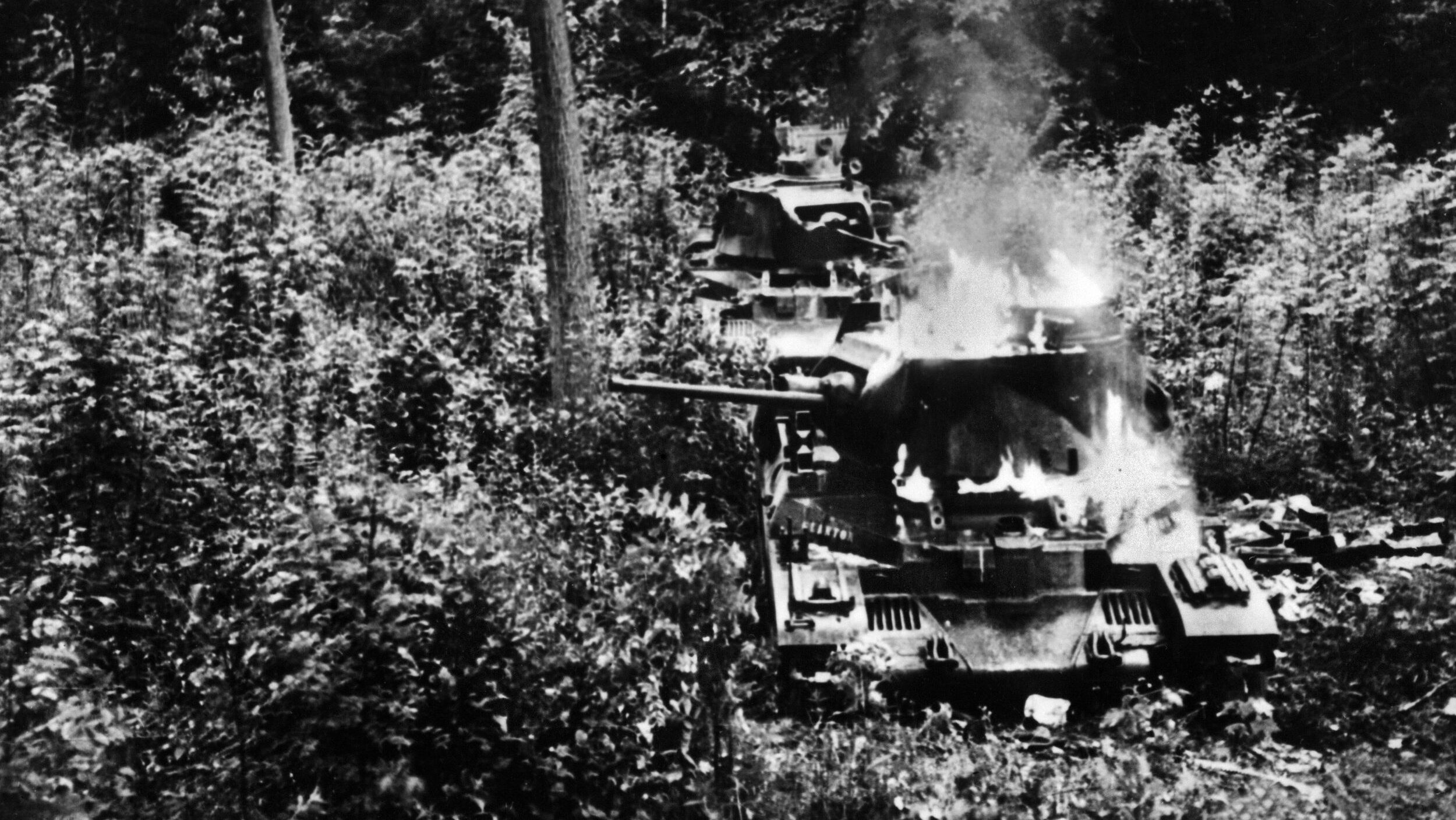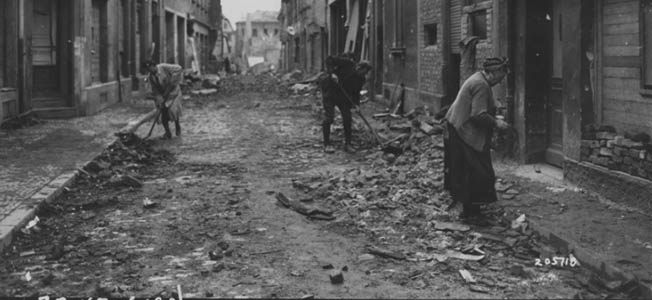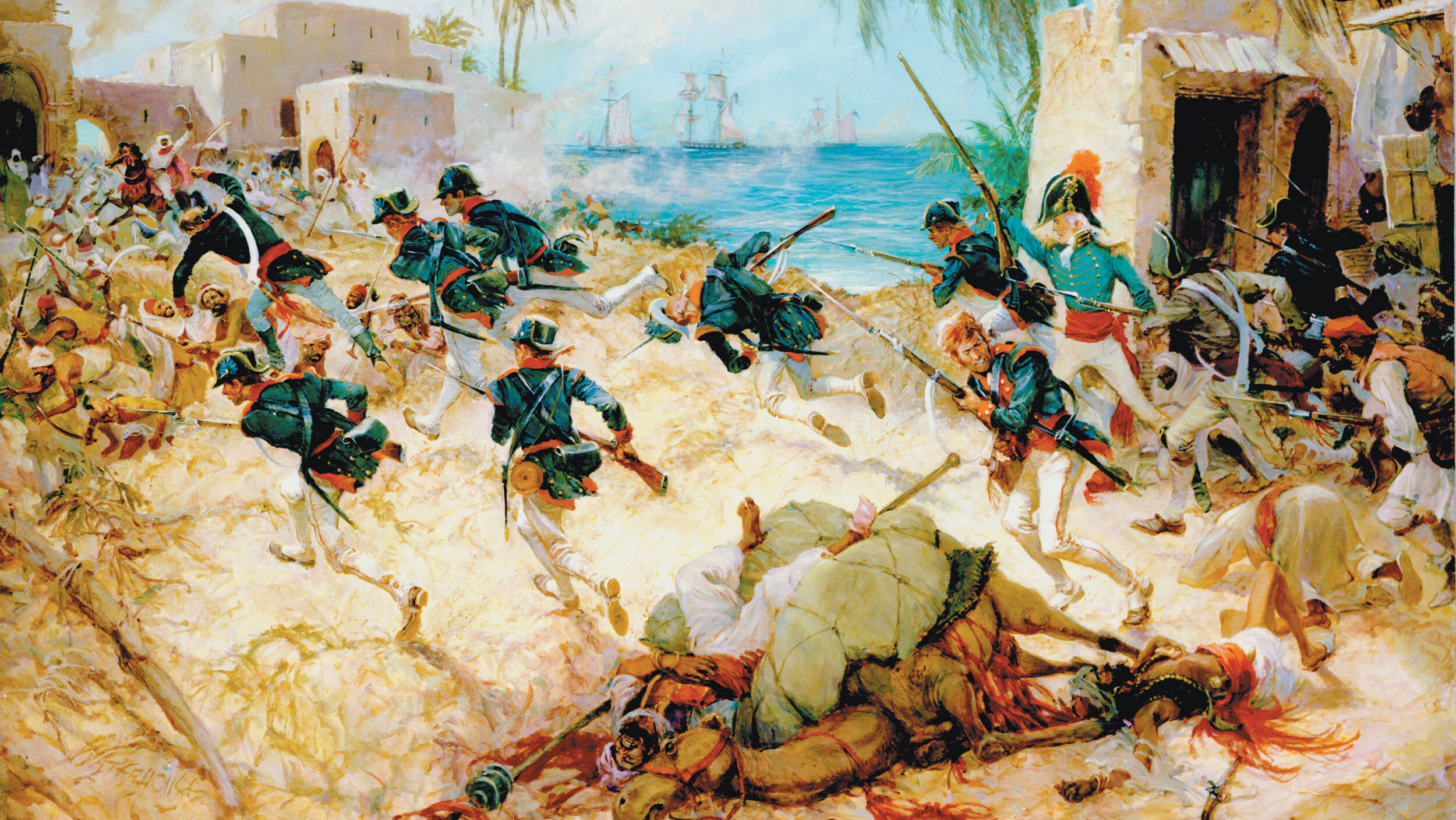By Kevin M. Hymel
The German V-1 flying rocket, packed with 1,870 pounds of explosives, buzzed over Birmingham, England, until its pulsing engine cut out. The rocket dropped out of the sky and exploded in the city, shattering windows, destroying buildings, and killing British citizens. Corporal Lena Derriecott, an African American soldier, heard the explosion but did not have time to reflect on its destruction. As a member of the U.S. Army’s 6888th Central Postal Battalion, the only all-black, all-female Women’s Army Corps (WAC) unit to serve overseas during World War II, Derriecott worked with other women to fix a backlog of mail for thousands of American troops serving in continental Europe. “Those were frightening times,” she recalled.
Derriecott appreciated her job’s importance. She knew that men fighting on the front lines looked forward to a letter from a friend or relative back in the United States. “One thing people in the service looked forward to was mail, knowing somebody was still thinking about them,” she explained. “In the military, mail call (when soldiers gathered around a designated mailman as he called out their names for letters or packages) is a very important time.”
Three years earlier, Derriecott was a 17-year-old student at Germantown High School, north of Philadelphia, Pennsylvania, when she learned about the Japanese attack on Pearl Harbor. She was the only child of divorced parents and lived with her mother and aunt. Her mother worked as a synagogue’s caterer while her aunt started her own kosher catering business. Her mother, who had been a farm girl in Georgia before moving to Germantown, also obtained permission from the state to grow vegetables on an abandoned golf course. “She was strong,” said Derriecott, “she grew enough food to feed most of the neighborhood.”
Despite her young age, Derriecott was quite active in local and national civic causes. She read books and followed the rise of Nazism in Germany in newspapers and on the radio. She also joined a radio show fan club called “Grace Granger and her Nackie Sackies,” which broadcasted from the Pearl Theater in Center City, Philadelphia. Nationally, she joined First Lady Eleanor Roosevelt’s National Youth Administration and traveled to Washington, D.C., to picket segregated restaurants. “We didn’t think they should be segregated,” she said. “Many restaurants gave in to the constant action that we took against them.”
Years before the war, Derriecott befriended a Jewish boy named Abram “Hyman” David, whose parents owned a delicatessen on Earlham Terrace in her neighborhood. Abram joined the Army Air Forces but was killed on his first combat mission. Derriecott was already working in a local hospital when David died, but his death inspired her to join the Army Air Forces.
Since only men were drafted, Derriecott volunteered in the summer of 1943 and applied for nursing. Derriecott was sent to Fort Des Moines, Iowa, for basic training. The fort had originally trained white female officers but opened a segregated section for black female officers. By the time Deriecott arrived, it was training enlisted women as well. Graduates would be part of the WAC. Derriecott learned to dress, march, and eat like a soldier. She bivouacked with other women, lit campfires, and learned military procedures. “We had to keep our shoes shined and our bunkbeds made tight enough to bounce a quarter on,” she said.
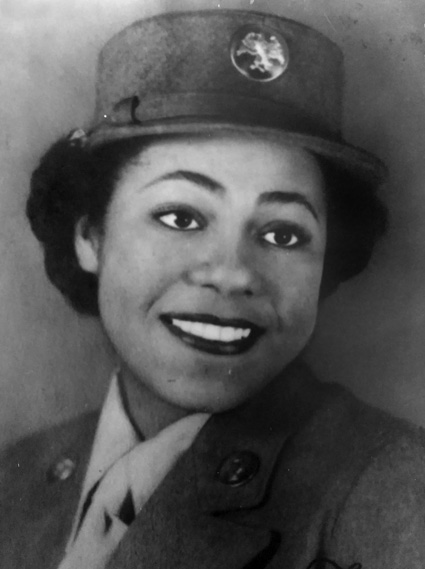
The women were issued khaki summer and wool winter uniforms called “pink & greens.” Since their hair could not touch their collar, the women either cut it or pinned it up. Derriecott, like all the other enlistees, learned to keep their uniforms and barracks clean. “If the cadre came marching through and spotted something wrong, they would penalize you,” she said. “It kept you on the ball.”
Army life proved strict, but Derriecott mostly remembered the cold climate. She took her turn standing guard in the snow and whipping winds. “I was almost frozen during guard duty,” she recalled. Once her training ended, she was sent to Douglas Army Air Field in southern Arizona, a training base for Martin B-26 Marauder pilots and crews.
When Derriecott arrived at Douglas in January 1944, she was given an aptitude test. Unfortunately, she had come down with a cold, forcing her to sneeze and cough through most of it, breaking her concentration. “I was never able to take the test again,” she said.
She befriended a fellow WAC, Emma Philpot. “That girl could sing!” Derriecott said of the woman who would become her best friend. “Whenever we had a talent show, she would always sing.” Derriecott considered herself a pretty good singer, but Philpott had a gift. Besides, admitted Derriecott, “I was too shy to sing.”
Derriecott served as a nurse at the base hospital. “They didn’t have the ability to give me the courses,” she explained, but the hospital needed nurses. She treated airmen, crews, and their families, never seeing combat wounded. Promoted to corporal, she also worked at the motor pool, keeping track of weekly B-25 bomber fuel levels and reporting how much fuel student pilots used. When she was not working her two jobs, she and her fellow WACs marched smartly in the weekly bomber pilot graduations. For entertainment, famous singers like Lena Horne and Arthur Prysock visited the base. “They were talented people,” said Derriecott.
One night Derriecott accompanied three black female officers to the base theater to enjoy a movie. One of the officers was a Lieutenant Clark, the chief WAC. They were waiting for the movie to start when a Military Policeman approached and said, “Ladies, you’re not supposed to sit there.” Lieutenant Clark asked, “What do you mean? These are officers’ seats. I am an officer.” The MP replied, “What I mean to say is, colored people are supposed to sit on that stand.” An enraged Clark shot back, “I want to talk to the colonel in charge. Show me where the phone is and I’d like to speak to him on the phone.” When she finally got Colonel Brandel on the line she told him, “Me and my girls have been highly insulted. Three of us here are officers.” The colonel responded with silence. “If you’re going to treat us like second-hand citizens,” Clark continued, “I’ll pull my unit out of here. We came here to help and we expect to be respected.” Clark hung up the phone, and the women marched out of the theater.
The next day, the colonel announced that the theater would no longer be segregated, nor would the bowling alley and cafeteria. Clark’s stand had a ripple effect she could not have foreseen. Within a year, African American pilot candidates arrived from Fort Huachuca, Arizona, to train on B-25s.
Not long after the theater incident, Derriecott met an African American drill sergeant named Hugh Thadius Bell in the post exchange. Along with his drill sergeant duties, Bell led the base band and served as the base bugler, blowing “Reveille” at sunrise and “Taps” at sunset. “He was the poster boy of the base,” recalled Derriecott. He asked her to the movies, and the two started dating. “We became well known on the post,” she said. Six months later, he asked her to marry him. “It was quite a wedding,” said Derriecott.
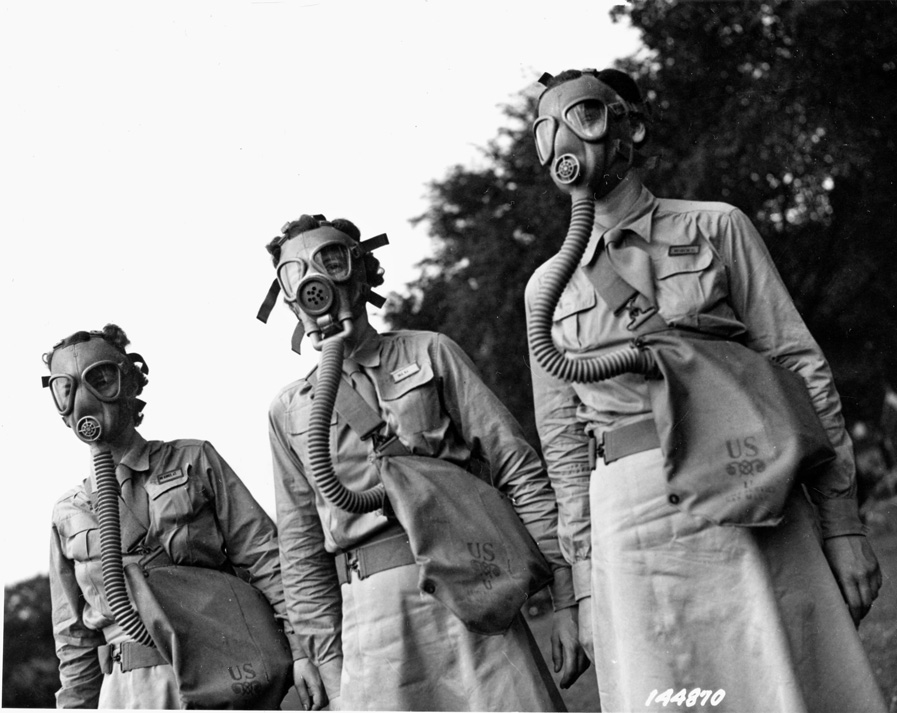
After almost a year at Douglas, Derriecott signed up for overseas duty. Mail for the troops in Europe was not getting delivered, and the Army decided its African American women would do the job. The competition was stiff. Women were evaluated for good temperament and character. Once chosen, Derriecott endured eight weeks of training with other candidates, marching, putting on gas masks in a room filled with tear gas, climbing rope ladders, and practicing abandon-ship drills. About a month after training, she got the call. “Of course, I didn’t know that we were going be called overseas that soon,” she said.
Derriecott said goodbye to her husband, who was very understanding. “He knew that when we got married he or I would go where we were told.” Derriecott and the other WACs were shipped directly to New York harbor, where they boarded the French luxury liner SS Ile de France, bound for Europe in late January 1945.
The women arrived in Glasgow, Scotland, on February 12 and traveled to the British city of Birmingham, some 100 miles southeast of Liverpool, two days later. The women were officially organized into the 6888th Central Postal Directory Battalion on March 12. Although D-Day had passed some eight months earlier and the Americans had erased the bulge in their lines after Adolf Hitler’s Ardennes Offensive, England was still a battleground. German V-1 and V-2 rockets rained down on the island nation. The WACs’ barracks had been hit by a V-1 and destroyed the day before they arrived. The women instead took up residence in an old schoolhouse, the former King Edwards Boys School. “It was the only place large enough to house all of us,” said Derriecott.
Their job would be to clear out warehouses full of undelivered mail. “We had a cadre of officers in charge,” she said. “We had to start from scratch.” Soon, Derriecott met Major Charity Adams, the highest ranking black WAC in Europe, who would command the 6888th Central Postal Directory Battalion. “She came through, and we were all introduced,” said Derriecott.
Adams impressed Derriecort, who knew, as a black female officer, Adams faced challenges other officers did not. “I do remember people saying she didn’t get the respect that she should have gotten,” she explained. Adams was the first African American woman to earn an officer’s rank in the U.S. Army.
The 6888th contained approximately 850 officers and enlisted personnel. The battalion was divided into four companies—A, B, C, and D—and a headquarters company, which handled all administrative and service support duties. The companies worked in three eight-hour shifts, around the clock and through weekends. Unlike other black units, the 6888th incorporated no white officers, making it unique to the European Theater of Operations. The women were given only six months to complete their task.
Their job would not be easy. The warehouses were dank, rat infested, and unheated, with blacked-out windows. February skies in England were either overcast or full of rain. Every day was cold. Inside the warehouses, bundled letters reached the ceiling, many of them more than two years old. Many Christmas food packages had either broken open or were gnawed by the rats.
The women worked to break the logjam. They located soldiers who had transferred from one unit to another and readdressed their letters. “That took a lot of work,” remembered Derriecott. “It kept you really busy, on your toes.”
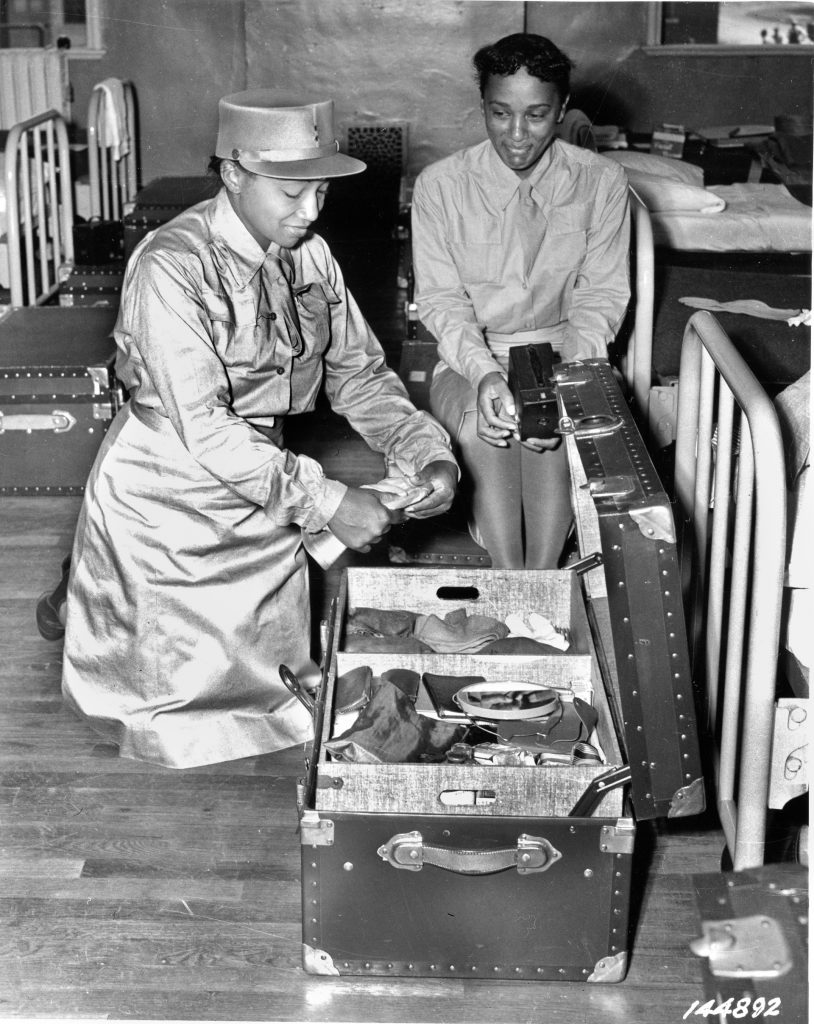
Then there was the distraction of war. V-1 “buzz bombs” and V-2 rockets had been raining down on England since July 1944. While the British had developed a stingy defense of antiaircraft guns, barrage balloons, and fighter planes to stop most of the V-1 pilotless planes, they had no defense against the V-2 ballistic rockets. “You could hear the German buzz bombs coming over,” said Derriecott about the V-1’s rocket engines, which pulsed with a buzzing noise that cut off right before exploding on impact. “You could hear in the distance when one had hit.”
The women could also see fleets of bombers and fighter aircraft in the sky. Although the Allies had achieved complete air supremacy over Europe, everyone had to be aware, lest an enemy plane penetrate the British antiaircraft defenses. “It was frightening because we didn’t know if they were ours or theirs,” she said.
In her off hours, Derricott got to know the war-weary citizens of Birmingham, whose city had been bombed heavily by the German Luftwaffe for three years before the V-1s began to fall. They had gotten used to blackout drills and hurrying into air raid shelters. “They opened up their homes to us,” she recalled. The locals did not have much to offer for food. War rations had reduced them to mushrooms and toast for breakfast. They also dined on cabbage or a tiny portion of fish on thick white bread. “We would get food from the PX and give it to them.”
On April 12, 1945, some hard news reached the 6888th. President Franklin Roosevelt, the man who had led his country out of the Depression and through war, and the only president many of the women had known, died. “I loved Roosevelt,” said Derriecott. “I just remember being very sad.”
The sadness over Roosevelt’s death soon turned to elation almost three weeks later when the German Army surrendered to the Allies in Reims, France, on May 8—VE Day. The WACs and the Birmingham citizens cheered, danced in the streets, and honked horns. “We had a big celebration,” said Derriecott. “Everyone was happy.”
About the same time as VE Day, the 6888th finished its job. Despite the hardships and the harsh winter conditions, the stacks of mail shrank, packages were rewrapped and sent forward, and dead letters were returned. The women of the 6888th accomplished their six-month task in only three months. In that time, they sorted, repackaged, and redirected an average of 5.85 million parcels every 30 days, for nearly 18 million parcels over 90 days. Each shift had sorted 65,000 parcels, 195,000 daily, and 5.85 million monthly. Another Army postal unit sorted just 624,000 parcels in one month before the 6888th arrived. The women of the 6888th proved that black women could contribute to the war effort quickly and efficiently if they were only given the opportunity.
Despite the victory, American soldiers were still in Europe and needed their mail. The 6888th was needed again to break a mail logjam in France. On May 20, the women sailed across the English Channel to Le Havre. Their destination: the French city of Rouen. There they would see the true face of modern war. “Everything was just bombed to rubble, and all the beautiful cathedrals were in heaps,” she said.
The women set up shop in a French monastery and began organizing and getting the mail out. Derriecott found it a better setup than Birmingham. “It was more permanent,” she said. In addition to pitching mail, she worked in the poster unit, which had been set up in one of the monastery’s open spaces. “I did a lot of drawings and made decorations,” she recalled.
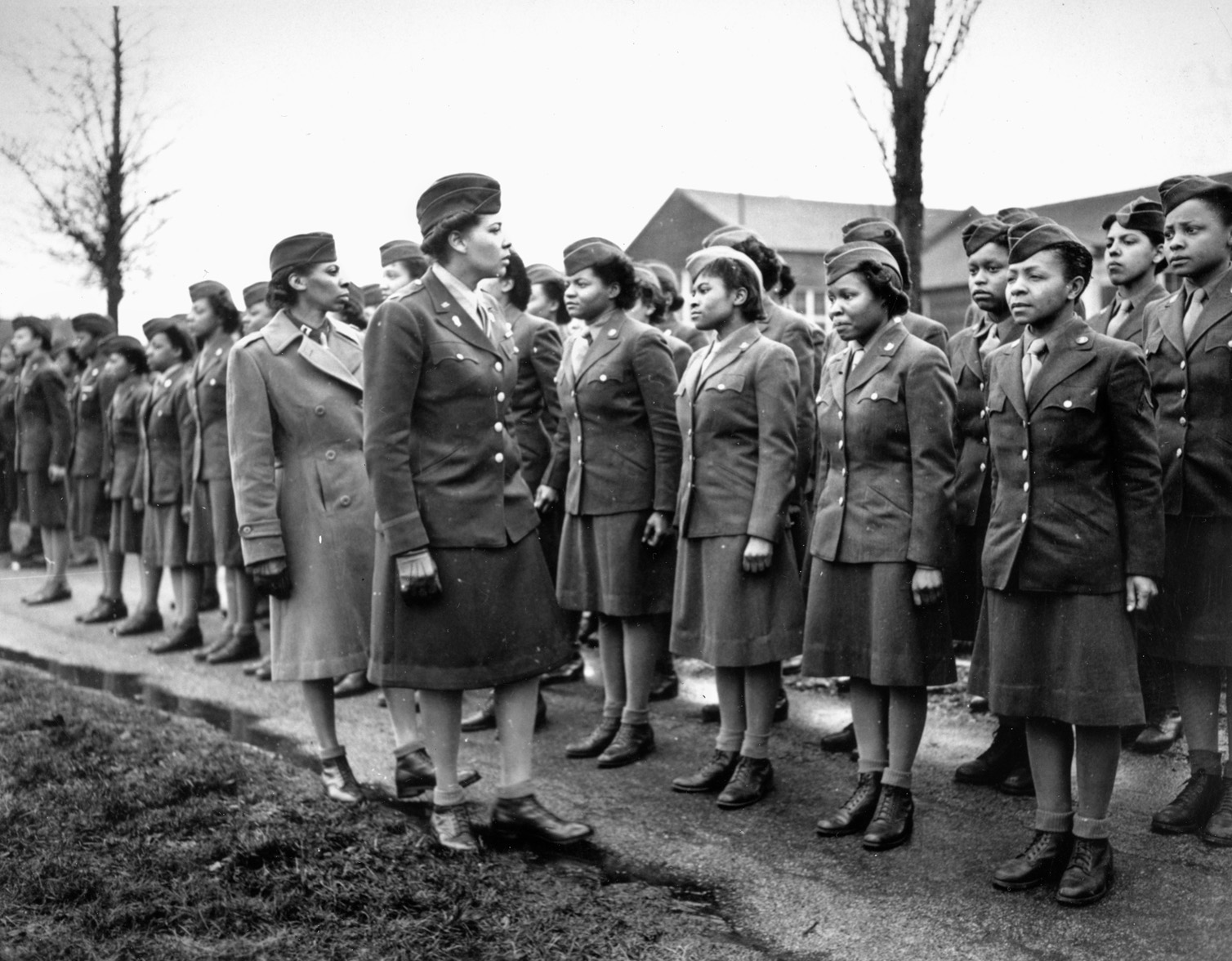
French civilians often visited, many hungry and looking for something to eat. The women helped whenever they could. One woman invited Derriecott to her café, where she was introduced to French bread. “I loved their bread,” she admitted. “It was so different.” Derriecott also saw French women whose heads had been shaved bald. “They got that from sleeping with Germans,” she explained.
On July 8, two U.S. Army two-and-a-half-ton trucks pulled up to the 6888th’s camp and picked up three WACs, Sergeant Delores Browne and PFCs Mary J. Barlow and Mary H. Bankston, for a job that needed to be done. They drove along a narrow road through a mountainous area. Then the trucks hit a spot where a mudslide had washed the road away and they rolled down a steep slope into a forest below. “It was a horrible accident.” They were the battalion’s only casualties, and all three were buried in the American Cemetery in Normandy, where they still lie today.
Derriecott did not stay in France long. With the war over and with so many American soldiers standing around idle, the U.S. military offered college-credit courses to people in uniform. Derriecott had won a number of prizes for her artistic ability in Rouen, so she entered her name in an education lottery for design school, was chosen, and headed to Leicester, England.
Although Derriecott loved design and enjoyed her classes, the experience proved uncomfortable. She and her roommate, a fellow 6888th veteran named Clara, were the only blacks in town, and their landlady turned out to be a coarse, petty miser who coveted the Americans’ pay and rations, particularly bacon. “That meant the world to her,” Derriecott explained. Derriecott was in England when she heard about the two atomic bombs dropped on Hiroshima and Nagasaki, and Japan’s subsequent surrender. “
While Derriecott finished her design lessons, the 6888th returned to the United States in March 1948. She later returned to France for her own ship ride home. At Camp Lucky Strike, she was added to a group of white WACs, again making her feel alone, yet the women befriended her.
Soon, they all boarded a converted luxury liner for home. The women were a minority among mostly male passengers. “I think I was the only black person on the whole ship,” she said. The journey home went smoothly, with clear skies and calm water.
The ship docked in New York harbor, and the women boarded a train to Fort Dix, New Jersey, to separate from the Army. When the train arrived, Derriecott’s mother, aunt, and a handful of friends greeted her. “We just hugged and cried and laughed,” she said. Her mother asked her where she wanted to go. “I just want some of your home cooking,” Derriecott told her.
Today, Derriecott enjoys retired life in Las Vegas, Nevada. At the age of 95 in 2018, she still goes to church every Sunday with her friend Barbara Lewis and does her own cooking.
Reflecting on World War II, Derricott is proud of her service. “It broadened my life,” she says. “I learned a lot about people and the world.” Even though it has been almost 75 years since she served overseas in uniform, the war sometimes comes back to her in her dreams. She drifts back to her 6888th friends and the people she met in England and France, but mostly she dreams of her ship ride home, knowing she had served her country with distinction and accomplished her mission.
Private First Class Romay C. Johnson also served in the 6888th.
Frequent contributor Kevin M. Hymel is a historian for the U.S. Air Force Medical Service and the author of Patton’s Photographs: War As He Saw It. He is also a historian/tour guide for Stephen Ambrose Historical Tours where he leads tours of General George S. Patton’s European battlefields.
